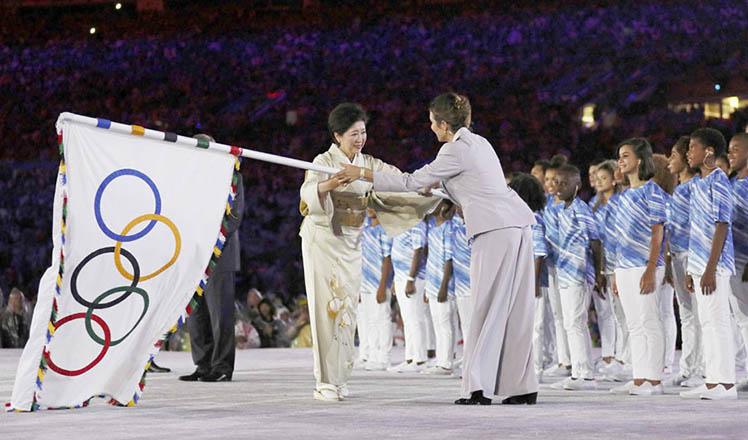Peninsula talks only way to end circle of hostility
Updated: 2016-08-25 07:11
(China Daily)
|
||||||||
 |
|
Chinese President Xi Jinping (2nd R) meets with his Republic of Korea (ROK) counterpart Park Geun-hye (3rd L) on the sidelines of the fourth Nuclear Security Summit in Washington DC, the United States, March 31, 2016. [Photo/Xinhua] |
Two days after the Republic of Korea and the United States began their annual military exercises to the south of the Korean Peninsula, the Democratic People's Republic of Korea test-fired a submarine-launched ballistic missile on Wednesday.
The missile, fired from near the coastal city of Sinpo, reportedly flew about 500 kilometers before it fell into the Sea of Japan, farther than those in previous tests.
The test, which has once again violated UN Security Council resolutions, has further raised tensions in Northeast Asia and compromised international efforts to denuclearize the Korean Peninsula.
The possibility that the DPRK could one day arm ballistic missiles with miniaturized nuclear warheads poses viable challenges to peace and stability in the region, especially since Pyongyang has warned of preemptive nuclear attacks against its enemies in the face of what it perceives to be threats to its security.
Pyongyang will no doubt argue that the test was in response to the ongoing military exercises by the ROK and the US and the planned deployment of the US' Terminal High Altitude Area Defense anti-missile system in the ROK.
Such tit-for-tat responses by both sides to the "provocative moves" of the other have created a vicious circle of hostility and suspicion that is fueled by fear and mistrust. This spiral of animosity will never end until the parties concerned sit down and talk.
The test-firing of the missile took place as the foreign ministers of China, Japan and the ROK were meeting in Tokyo, the first such meeting since March 2015. It is encouraging that despite the differences that have otherwise cooled relations among the three countries, they expressed their shared opposition to and condemnation of the missile test and called on countries to implement the sanctions imposed on the DPRK by the UN.
That the three neighbors share common ground on the Korean Peninsula nuclear issue is indispensible if a peaceful resolution to the crisis is to be achieved through negotiations.
China has, and will continue, to play its part in pushing forward efforts to make the peninsula nuclear free. But to overestimate the sway it holds over the DPRK, and to blame it for "a lack of pressure" over the latter is unrealistic and unfair.
The Korean Peninsula nuclear issue essentially stems from Pyongyang's existential concerns and the conventional weapons superiority that it perceives to be aligned against it. While opposing its nuclear program, China has consistently held that the DPRK's security concerns are genuine and should be addressed.
This is the only viable approach to ending the crisis and the one that China consistently upholds.
- China, Japan, S. Korea should work to make differences controllable
- Several killed after strong quake strikes Italy, topples buildings
- FM's Tokyo trip to help set trilateral G20 cooperation tone, source says
- DPRK's renovated central zoo attracts thousands of visitors every day
- Canadian PM to visit China
- UN Security Council slams deadly terrorist attack in Turkey

 Top 5 smartwatches in customer satisfaction
Top 5 smartwatches in customer satisfaction
 Woman creates silk Chinese cabbage
Woman creates silk Chinese cabbage
 Panda family celebrate birthday in Malaysia
Panda family celebrate birthday in Malaysia
 Life of an underwater photographer
Life of an underwater photographer
 Lakers confirms Yi Jianlian's signing
Lakers confirms Yi Jianlian's signing
 Premier Li pays homage to Red Army martyrs
Premier Li pays homage to Red Army martyrs
 'Born in China' in Chinese paintings
'Born in China' in Chinese paintings
 Goodbye, Rio; hello, Tokyo
Goodbye, Rio; hello, Tokyo
Most Viewed
Editor's Picks

|

|

|

|

|

|
Today's Top News
Trump outlines anti-terror plan, proposing extreme vetting for immigrants
Phelps puts spotlight on cupping
US launches airstrikes against IS targets in Libya's Sirte
Ministry slams US-Korean THAAD deployment
Two police officers shot at protest in Dallas
Abe's blame game reveals his policies failing to get results
Ending wildlife trafficking must be policy priority in Asia
Effects of supply-side reform take time to be seen
US Weekly

|

|







